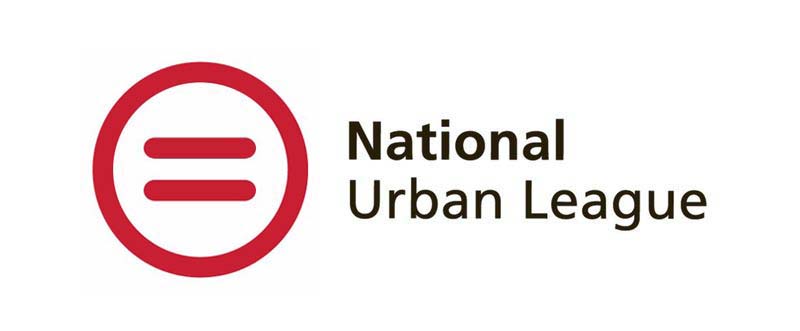Searching for a job can feel like a full-time job. Finding the right roles to apply for, personalizing cover letters and resumes, and going through multiple rounds of interviews can be exhausting and draining. So how can you set job search boundaries to maximize your potential without minimizing your mental health?
1. Narrow Down What You’re Looking For
The “spray and pray” tactic — where you apply for as many jobs as you can, in hopes of increasing your chances of getting hired — doesn’t work unless you’re taking the time to customize your job applications.
Instead of trying to apply to anything you might be qualified for, take the time initially to figure out what kinds of roles you really want. Ask yourself questions like:
- What kind of daily responsibilities or work do I want to do?
- What kinds of companies do I want to work for?
- What are my non-negotiables when it comes to benefits or work environment?
- What are my top values in a job?
>>MORE: Not sure what career is right for you? Take our free quiz.
Then, start searching for job descriptions that fit that bill. It’s OK if you’re still applying in different industries or even for different types of roles. As long as you’re applying for jobs you’d actually want — and would accept — you’ll save yourself valuable time in the long run.
Find the right roles for you.
Explore industries, companies, and jobs for free with 100+ job simulations to choose from.
2. Set Tangible Goals
Between online applications, follow-ups, Zoom interviews, and networking, there’s so much to do in a job search. Everything feels urgent, yet it’s overwhelming to take it all on at once.
Instead, set daily tangible SMART goals. For example, you might tell yourself that your goal for the day is to customize your resume for that marketing associate position and to follow up on another application.

SMART Goals
Learn how to use data to set meaningful goals that drive results.
Avg. Time: 2-3 hours
Skills you’ll build: Planning, organization, learning and self-evaluation, problem-solving, leadership
Your goals should be things you can reasonably achieve within a day and specific enough that you know exactly how to check them off your to-do list. Instead of telling yourself to “find jobs to apply for,” opt for something like “find three remote investment banker jobs to apply for.”
3. Use the Right Tools
Should you use ChatGPT to write a resume? What about using ChatGPT for a cover letter? And how does ChatGPT fare for interview advice?
Yes, artificial intelligence like ChatGPT can be a great job search resource, if you know how to use it well! For example, text-based tools can help get the ball rolling if you need help writing application materials or want feedback on some of your prepared interview responses.
Yet there are tons of other tools out there that can help you with your job search. There are job search tools that can:
- Submit applications for you automatically
- Help you fine-tune emails to hiring managers
- Generate a professional headshot
- Give you a skills assessment and match you to role
- Find opportunities by specific niche, like roles at nonprofits or workplaces with flexible work environments
- Build a professional online portfolio
When you use these resources, you can job search more efficiently and effectively, helping you minimize the time you spend finding roles, perfecting your resume, and more.
>>MORE: Learn all of the 85 Best Job Search Sites and Apps in 2024.
4. Work Smarter, Not Harder
You don’t need to spend your whole day on the job search to be successful. Instead, “create a calendar for yourself and dedicate certain hours of the day to the job search,” Olga Eippert, people operations professional, says. “The rest of the time, make sure you unwind, relax, and do something fun and something that brings you joy.”
>>MORE: Job Search Anxiety After College? Find Your Zen With These 8 Tips
5. Be Mindful
Thinking about your career trajectory and financial livelihood is enough to send anyone’s head spinning. Practicing mindfulness — by trying to be aware of our surroundings, how we’re feeling and aiming to be present — can help ground us when we’re panicking about our applications or stressing before an interview. Exercises like mindful breathing, body scans, and light movement can help us reset and focus.
“Infusing mindfulness into your job search will help you cultivate intention and calm, which provide the positivity, clarity, and boundaries you need to make your search a success,” Trie Angeleva, mindful career and life strategist, says.
Get noticed by top recruiters
Explore Forage’s free job simulations and build the skills you need to get hired.
6. Be Patient
Waiting for a response from a company doesn’t always mean it’s a “no.”
“Don’t expect companies to get back to you right away,” Eippert says. “People are busy, especially at (early stage) startups where resources are limited, and sometimes it can take some time for them to see a resume and get back to applicants.”
Instead of getting worried when someone doesn’t respond immediately, practice patience and follow up at the appropriate time (within 24 hours after an interview or however long the hiring manager said it would take for you to hear about next steps).
>>MORE: How to Follow Up on a Job Interview in 2026 (With Example)
7. Reframe Rejection …
“Don’t take things personally,” Eippert says. “A rejection is not a reflection of you or your abilities. It simply means that the job wasn’t the right one for you and something better is waiting for you.”
Rejection can also be a helpful learning tool and an opportunity to get feedback from hiring managers.
“Rather than seeing it as some type of frustration or failure, appreciate that it is a natural part of the process that gives you insights and only gets you closer to a position that is a better match,” Angeleva says.
8. … and Celebrate It
“Instead of dwelling on the fact that you received a rejection, celebrate it! Every time you get a rejection, say to yourself, ‘thank you universe for protecting me from something that wasn’t right for me,’” Eippert advises.
Don’t let rejection stop you from succeeding in your job search. Once you get a “no,” Eippert recommends taking a break and doing something for yourself.
“Exercise, take a deep breath, take a nap, meditate, do yoga, or watch a funny show/movie that makes you laugh,” Eippert says. “All these things will release endorphins and make you feel better.”
Once you’re well-rested and re-energized, you’ll be able to return to your job search mindfully and effectively.
Looking for a job can be difficult, stressful, and draining, but it’s possible to get the job done without putting a strain on yourself or your mental health. To build more confidence in your job search and up your workplace skills, check out Forage’s interview and career skill job simulations.
Image credit: Canva

